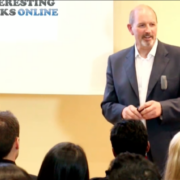As a coach I have to be able to listen – this may sound all very obvious, right? But there’s listening and then there’s ACTIVE listening. This is a skill that is not only fundamental for any coach, but it is also an essential skill for any meaningful interaction be it in our lives at work, with our friends or at home.
According to the International Coaching Federation’s core competencies, active listening is:
“The ability to focus completely on what the client is saying and is not saying,
to understand the meaning of what is said in the context of the client’s desires
and to support client self expression.”
As a member of the ICF, this skill is not only a core competency (the fundamental skills of life coaching) but is practically an article of faith emphasized in all our training and our CPD going forward.
IMPORTANT BENEFITS OF ACTIVE LISTENING
Being Present
I become fully present and ‘in the moment’ with whoever I’m in discussion with – to the exclusion of all else. This is irrespective of whether we are having a discussion in a consultation room, or in a bustling hotel foyer
Get ALL the information
Active Listening distinguishes and ‘reads’ on just the words, but also the emotions, the tone of voice and the body language. All of these inform the flow of information and the quality of our work together
The agenda is yours!
It ensures the agenda is being set by you – by adhering to what I am hearing, seeing and sensing you are not going to be fit into any pre-prepared behavioural models. What you say will dictate and direct what happens next and where our journey takes us.
Follow what’s being said
It prevents the mind from running ahead of what is actually being said. If we do that, then we’re not listening properly and focusing on the present discussion. Instead we are over thinking and analysing to the detriment of the discussion.
Clarity for both of us
‘AL’ develops understanding and gets to the heart of the main issues in a way that produces remarkable trust and clarity in areas which may have been obscured in the past.
What people are REALLY thinking
This may not come immediately. Openess and candour can give vital and valuable information – what people have to say is the clay with which we have to work.
It is as important to understand a person’s strengths and potential for greatness as well as observing their challenges and vulnerabilities – the whole picture has to inform the discussion and, of course, the conclusions.
THE ROLE OF MINDFULNESS
Mindfulness practice, both formal and informal, makes all of the above that much more natural and easily available. The ability to maintain a high state of awareness in the moment, and without judgement, helps to take the skill of Active Listening to another level – but that’s a whole new topic….
I maintain that people already have everything they need to make positive, lasting change for the better in their lives. If proper attention and awareness is paid to what is being said – this will provide us both with all the raw material we need on which to build a rewarding and successful coaching relationship.





